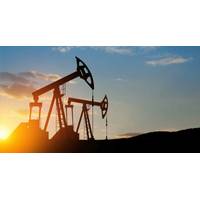Norway's $900 Bln Fund Dropping Firms with Links to Coal
The fund, which invests the revenues from Norway's oil and gas production, is the world's biggest sovereign wealth fund, owning 1.3 percent of all listed company shares globally. As of the end of 2016, it owned shares in nearly 9,000 firms.
Norway's parliament decided in 2015 that the fund would sell holdings in companies that derive more than 30 percent of their turnover or activity from coal because it is a big contributor to climate change and air pollution.
The ten companies excluded on Tuesday were: CEZ, Eneva, Great River Energy, HK Electric Investments, Huidan Energy, Korea Electric Corp , Malakoff Corp, Otter Tail Corp , PGE and SDIC Power Holdings.
The central bank also said it had put two companies under observation for potential exclusion in the future. These are NorthWestern Corp and Portland General Electric.
After Tuesday's announcement, the fund has excluded 69 companies and placed 13 companies under observation for their use of coal, it said.
Another 26 companies are at risk of exclusion, CEO Yngve Slyngstad said when presenting the fund's 2016 responsible investment report. "(They) are in the border zone," he told reporters.
But three environmental groups said the move did not go far enough, saying that the fund still had 26 billion crowns ($3.07 billion) in 32 companies that own coal mines or coal-fired power plants and 2 billion crowns in 15 companies that transport coal or build coal power stations, according to their own analysis.
"The job is only half done," said Christoffer Klyve, the head of The Future is in Our Hands. The other green activist groups were Greenpeace and Germany's Urgewald.
Slyngstad said the fund was keeping companies that had plans to reduce their share of coal. "Now we need to confirm that these companies have concrete investment plans and not just that they think it could be a good idea," he said.
In May, Norway's parliament told the fund to develop a policy on how companies in which it has invested declare their taxes. This was a first step by Norway to use the fund as a tool to combat the use of tax havens following the Panama Papers.
On Tuesday, Slyngstad told Reuters the fund would present its requirements for companies on this issue when it publishes first-quarter results on April 7. He declined to say what the policy paper could involve.
The CEO said that in 2016 the fund began a dialogue with 22 companies in which it owns shares that use Turkish textile firms in their supply chains.
Slyngstad said this was because of concerns about the use of child labour and other human rights abuses following the influx of Syrian refugees in the country. Turkey is Europe's third-largest textile supplier after China and Bangladesh, he said.
"Clearly the risk is that Syrian refugees could have less labour protection than other workers," he told reporters.
"Out of the 22 companies, we are following up with four companies with a concrete dialogue about how they work with this issue," Slyngstad said. He did not name the companies.
(Reporting by Gwladys Fouche)





